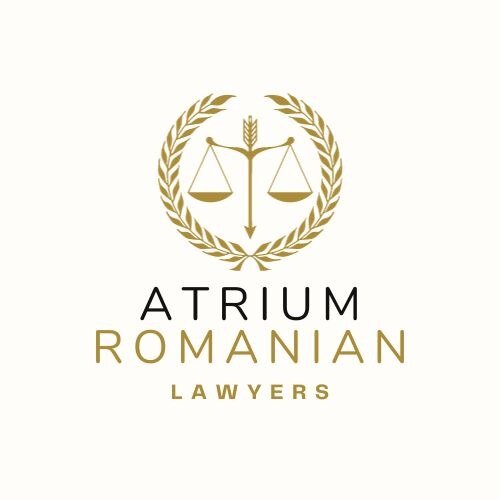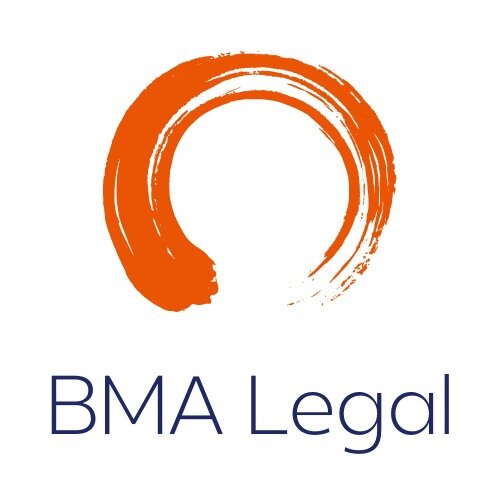Best Structured Finance Lawyers in Bucharest
Share your needs with us, get contacted by law firms.
Free. Takes 2 min.
List of the best lawyers in Bucharest, Romania
About Structured Finance Law in Bucharest, Romania
Structured finance is a complex branch of financial law dealing with sophisticated financial instruments and transactions designed to help businesses manage risk, improve liquidity, and raise capital. In Bucharest, Romania, structured finance typically involves securitizations, syndicated lending, asset-backed securities, and derivatives. Structured finance law provides the legal framework for the creation, negotiation, and execution of these structured products, ensuring compliance with both national and European regulations. Because of the complexity and highly regulated nature of this field, legal advice is essential for both local and international companies operating in Bucharest's financial markets.
Why You May Need a Lawyer
Legal counsel is vital in structured finance deals because these transactions often involve significant legal, tax, and regulatory implications. Individuals and companies might need a lawyer for several reasons, such as:
- Drafting and negotiating complex agreements like collateralized loan obligations or asset-backed securities
- Ensuring compliance with local and EU financial regulations
- Advising on regulatory approvals required from Romanian authorities, such as the Financial Supervisory Authority
- Structuring cross-border transactions involving Romanian entities
- Mitigating risks related to credit, taxation, and insolvency
- Handling disputes or litigation arising from structured finance transactions
- Advising on restructuring or unwinding existing structured finance deals
Due to the high stakes and technical complexity, seeking professional legal advice early in the process can prevent costly mistakes and ensure that deals are executed smoothly and lawfully.
Local Laws Overview
Structured finance activity in Bucharest is overseen by several Romanian laws and European Union regulations. Key legal aspects include:
- The Romanian Civil Code, which lays the foundations for contracts and security interests
- The Law on Capital Markets, regulating securities offerings, public listings, and investor protection
- Laws governing banking and financial institutions, particularly regarding lending, anti-money laundering, and risk assessment
- EU directives such as the Capital Requirements Directive, MiFID II, and the Securitization Regulation, all of which have been transposed or are directly applicable in Romania
- The role of the Financial Supervisory Authority (ASF) in licensing, supervising, and enforcing compliance among financial players
- Tax codes affecting the structuring and profitability of deals, including Value Added Tax and withholding taxes on cross-border transactions
Local laws may impose specific requirements regarding disclosure, reporting, and transparency, as well as offer certain protections to investors. Failure to observe these rules can lead to fines, invalidation of transactions, or even criminal liability in severe cases.
Frequently Asked Questions
What is structured finance, and how is it used in Romania?
Structured finance refers to complex financial transactions that leverage various instruments and techniques to offer tailored financing solutions. In Romania, it is often used by corporations and banks for project finance, asset securitization, and risk management.
Is structured finance only for large companies?
While often used by large entities, mid-sized companies in Romania also use structured finance to access capital or manage risks that would be difficult to address with traditional loans.
What types of assets can be securitized in Romania?
Common assets include mortgages, receivables, commercial loans, and leasing contracts. Legal protections apply to both the seller and investors in these transactions.
Do structured finance transactions in Bucharest require regulatory approval?
Many types will require oversight or approval from the Financial Supervisory Authority, especially when public offerings or regulated financial instruments are involved.
How does Romanian law protect investors in structured finance deals?
Romanian and EU laws mandate disclosure requirements, establish bankruptcy-remote structures, and provide frameworks for investor recourse in case of default.
Can foreign companies participate in Romanian structured finance markets?
Yes, but they must comply with local registration, taxation, and reporting requirements. Legal counsel is advised for cross-border structuring.
What are the main risks associated with structured finance in Bucharest?
Risks include credit risk, legal risk, regulatory changes, tax implications, and potential disputes or insolvencies.
How are disputes from structured finance contracts resolved?
Most contracts specify dispute resolution mechanisms, often through arbitration or Romanian courts specializing in commercial matters.
Is there a minimum deal size for structured finance transactions in Romania?
There is no formal minimum, but the complexity and cost involved usually make it suitable for larger transactions or portfolios.
Does structured finance law in Romania align with European standards?
Yes, Romanian laws implement and comply with applicable EU directives and regulations to ensure harmonization across the single market.
Additional Resources
If you seek further information or guidance on structured finance in Bucharest, consider the following resources:
- Romanian Financial Supervisory Authority (ASF) - primary regulator for non-banking financial markets
- Bucharest Stock Exchange (BVB) - offers information on securities and market operations
- National Bank of Romania (BNR) - oversees banking sector stability and policies
- Romanian Chamber of Commerce - can provide business networking and legal contacts
- Professional legal associations, including the Bucharest Bar Association, which can help you find certified legal professionals
Next Steps
If you require legal assistance with structured finance in Bucharest, Romania, consider these steps:
- Assess the nature and scope of your transaction or legal concern in detail
- Compile all relevant documents, such as contracts, financial statements, and correspondence
- Research and shortlist law firms or lawyers specialized in structured finance and financial regulations
- Schedule an initial consultation to discuss your needs, potential solutions, and associated costs
- Ensure your chosen lawyer or firm has experience working with regulatory bodies and handling cross-border transactions, if applicable
Early legal advice can save you time and reduce risks, ensuring your structured finance deals are both profitable and compliant with Romanian and EU laws.
Lawzana helps you find the best lawyers and law firms in Bucharest through a curated and pre-screened list of qualified legal professionals. Our platform offers rankings and detailed profiles of attorneys and law firms, allowing you to compare based on practice areas, including Structured Finance, experience, and client feedback.
Each profile includes a description of the firm's areas of practice, client reviews, team members and partners, year of establishment, spoken languages, office locations, contact information, social media presence, and any published articles or resources. Most firms on our platform speak English and are experienced in both local and international legal matters.
Get a quote from top-rated law firms in Bucharest, Romania — quickly, securely, and without unnecessary hassle.
Disclaimer:
The information provided on this page is for general informational purposes only and does not constitute legal advice. While we strive to ensure the accuracy and relevance of the content, legal information may change over time, and interpretations of the law can vary. You should always consult with a qualified legal professional for advice specific to your situation.
We disclaim all liability for actions taken or not taken based on the content of this page. If you believe any information is incorrect or outdated, please contact us, and we will review and update it where appropriate.

















